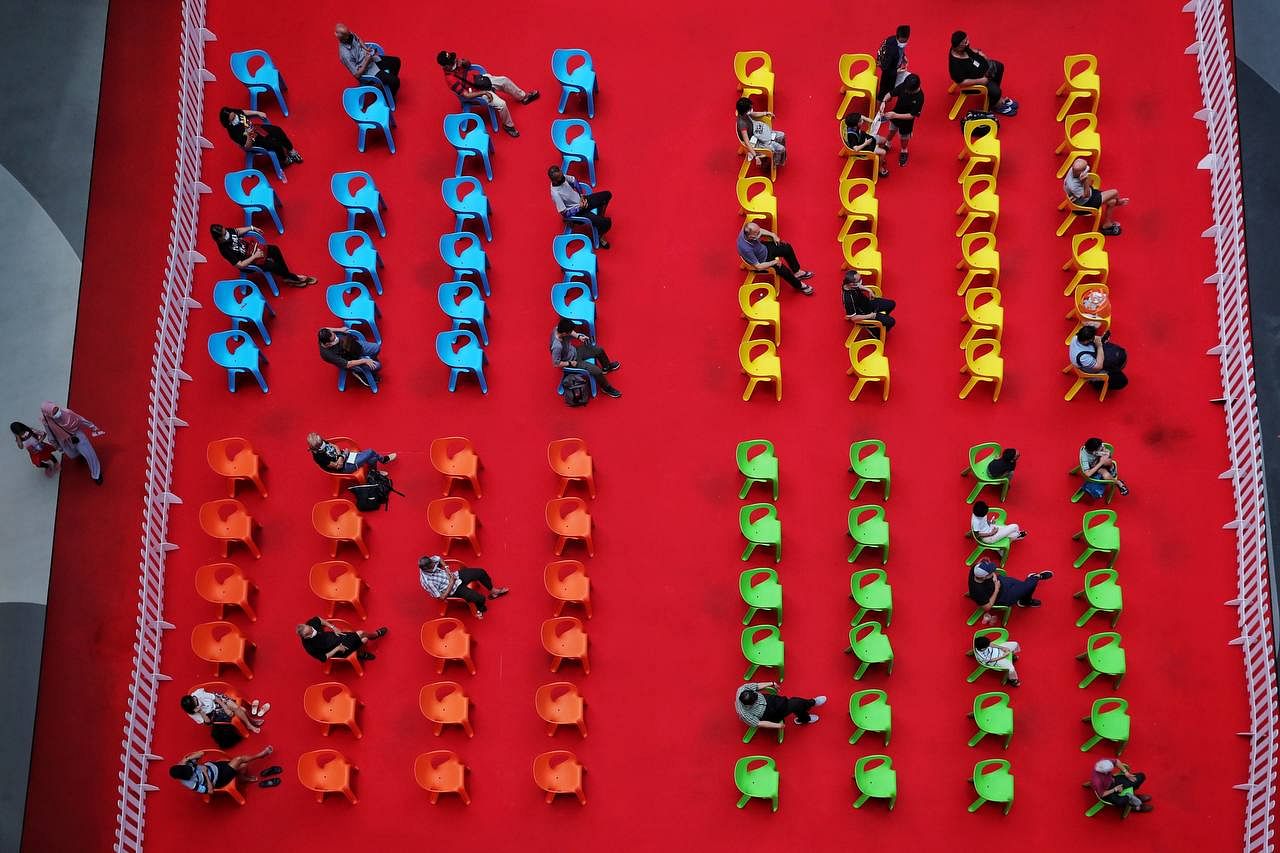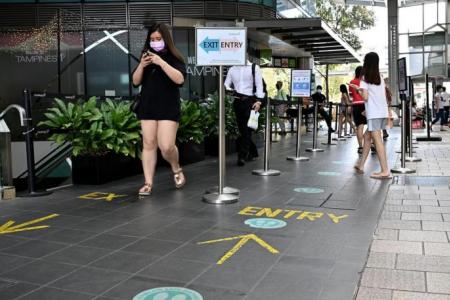Uncertainty of Covid-19 situation should not hold S'pore back from easing restrictions: Experts
The Covid-19 situation remains uncertain and recurrent waves of infection could happen in the future, but this should not mean that Singapore should hold back completely from easing its pandemic curbs, said experts on a panel on Tuesday (March 15).
Professor Teo Yik Ying, dean of the NUS Saw Swee Hock School of Public Health, and his fellow panellists acknowledged the possibility that the relaxing of measures may need to be reversed at some point should a new variant or a new wave of infections emerge.
"But we shouldn't be in a limbo state to say that we will not ease any of our measures because there's this uncertainty that's still out there," Prof Teo said.
He was speaking at a discussion titled Covid-19 Restrictions: When Can They Be Eased Further. It was held at SPH Studios in Toa Payoh and moderated by The Straits Times' senior health correspondent Salma Khalik.
Communicating clearly to the public over what measures can be relaxed, what cannot be, and what are those that may have to be brought back in the case of a resurgence in cases, "is just as important in deciding whether to ease or not to ease", Prof Teo said.
Another panellist, Professor Dale Fisher, a senior infectious diseases consultant at the National University Hospital, brought up the question of what the endgame could be for Singapore in dealing with the pandemic and how the country is going to get there.
"I think the endgame is relative normality because it'll be a circulating virus, we're getting exposed, we protect the vulnerable. I think that's just how it has to be," he said.
There will be some behavioural changes, Prof Fisher noted, adding: "I think the behavioural changes will be in symptoms, I don't think it'll be cool to go to work coughing and spluttering and sneezing any more, I think that there just won't be tolerance for that."
Other topics discussed at the panel included the strain on the healthcare system and how testing requirements for travel could change.
Singapore's streamlined Covid-19 measures came into effect on Tuesday, including adjusting the maximum number of visitors to households to five at any one time, from five unique visitors a day.
The multi-ministry task force tackling Covid-19 has said that Singapore will be able to take the next step in easing its measures when the pandemic situation here improves and healthcare capacity permits.
The Republic reported 9,042 new Covid-19 cases as at noon on Monday, with the weekly infection growth rate at 0.84. The rate refers to the ratio of community cases for the past week over the week before. A rate of more than one indicates that the number of new weekly Covid-19 cases is increasing.
About 1,310 patients are currently in hospital.
About 95 per cent of the eligible population in Singapore have completed their full vaccination regimen, and 70 per cent of the total population have received their booster shot.
Prof Fisher pointed out that the relationship between the community and the health authorities is what has kept Singapore strong so far.
"There's a lot of trust, a lot of respect, a lot of faith in decisions being made," he said.
With strong two-way communication between the authorities and the public, policymakers will be able to understand community concerns and keep them informed, he said.
Having such an understanding also means the community would be better able to function as one and comply with restrictions should they be required, Prof Fisher added.
"I think that strong relationship is critical and that's the new normal, not just get rid of everything and it's a one-way street."

Asked whether the country should start rolling back restrictions now, Professor Leo Yee Sin, executive director of the National Centre for Infectious Diseases, sounded a cautious note.
She said: "While we are thinking of rolling back or peeling off some of the measures, also be prepared that we are still at a very dynamic state.
Singapore may need to step up on curbs at some point, "depending on what is going to come in the future".
Prof Leo stressed that whether or not Singapore should relax its Covid-19 restrictions is a balancing act - considering the needs of the healthcare sector as well as others.
"Whatever the case, I think it's very important for us to continue to be able to monitor the situation and have something still in your pocket that should it turn out not the way that you predict, you have a contingency plan, you can still hold on to the situation," she said.
During the panel, Prof Teo also highlighted that while Singapore as a society has been good at taking stock of deaths from the virus and impact of Covid-19 on the economy, it has not been very good at counting "the cost of missed opportunities".
When it comes to these other aspects, which include social interactions for children and mental wellness, the country is not great at assessing the cost impact, but it nevertheless exists, he said.
"For every day that we keep our measures, there is an impact not just to the economy, but also to the softer side of our lives."
Get The New Paper on your phone with the free TNP app. Download from the Apple App Store or Google Play Store now

